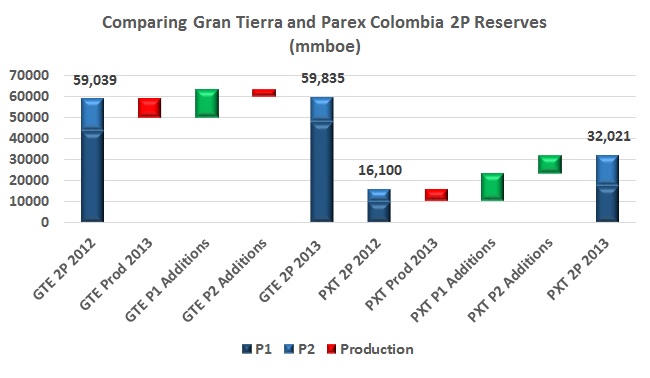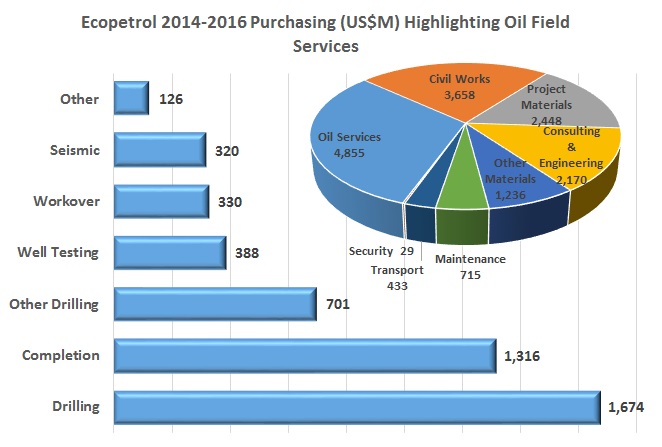Incidents near areas of interest to the oil and gas industry were down slightly to 27 below recent and long-term averages. Non-Armed Forces-reported incidents were below average both in absolute terms and as a percentage of the total. This is our indicator of increased guerrilla-initiated activity. Our 4-week Moving Average incident count was down at 33.8 and the 52 week average was also down at 31.2 incidents per week.

Gran Tierra (TSX:GTE) had teased us with an announcement about its reserve additions in Peru but this week both it and Parex (TSX:PXT) published their full reports on reserves, including detail on Colombia in the case of GTE.
The controversy from last week’s headline’s that government agents were spying on delegates at the roundtable in Havana, Cuba did not spill over into this week, as congressional members look to alternatives to speed the stalling talks.
Local communities are not only active players in the extraction process they are also important for the process to be successful, and to do so agreements must be made and the government should play a strong role as observer and ensure that in detail that promises are met on both sides, according to an executive with Pacific Rubiales Energy (TSX:PRE).
The National Environmental Licensing Authority (ANLA) has issued a decree that simplifies the requirements needed to gather specimens needed for environmental permitting and licenses, a step in the process whose catch-22 has dogged the environmental process for hydrocarbon companies.
Authorities from Colombia and Venezuela met in Maracaibo last week and have penned an agreement to collaborate against the sale of contraband fuel on their shared border, and opened the door to selling Venezuelan fuel once again.

Recently Ecopetrol (NYSE:EC) gave its annual purchasing strategy presentation to its accredited providers. The chart shows a pie chart of all purchases as well as a breakdown of the Oil Services category.
The new royalty system is taking shape and receiving royalties is no longer “like winning the lottery”, resulting in car purchases and other extravagance, says the director of the National Planning Department (DNP) Tatyana Orozco.
The upcoming Colombia Round 2014 will likely have two phases in order to separate conventional and unconventional resources according to the Minister of Mines and Energy Amylkar Acosta.

In the Putumayo Department, 2014 has kicked off with a wave of violence that has cost 30 lives to date, among them three community leaders and an oil engineer, and the region’s representative to the lower congressional house has called for help from the national government and military.